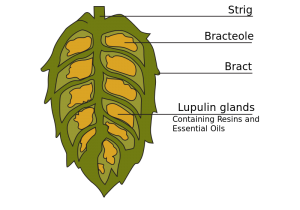 It may shock people, but we here at Perio NYC are avid beer fans. Our Manhattan area patients are always surprised to hear this, wondering what kind of dentist approves of drinking beer. After all, isn’t beer bad for our teeth? We’re very happy to say that the drink doesn’t do as much damage as you would think. In fact, beers brewed with hops can actually be beneficial to the state of your oral health.
It may shock people, but we here at Perio NYC are avid beer fans. Our Manhattan area patients are always surprised to hear this, wondering what kind of dentist approves of drinking beer. After all, isn’t beer bad for our teeth? We’re very happy to say that the drink doesn’t do as much damage as you would think. In fact, beers brewed with hops can actually be beneficial to the state of your oral health.
With so many different brews to choose from in the Manhattan area, our patients are probably ecstatic to learn that they won’t have to give up their beverage of choice. (Don’t go too crazy, though. Remember, moderation is key with these kind of things.) Today, Drs. Susan Karabin and Edward Gottesman are writing to talk about hops and how it can be beneficial to your oral health.
Does Your Beer Have Hops?
Despite being a regular ingredient these days, hops wasn’t always seen in such a good light. In fact, for the longest time hops was considered nothing more than a weed. This all changed during the colonial period of American history. During this time, the majority of the beer being consumed was imported from Britain. However, brewers noticed that a lot of what they were sending across the Atlantic Ocean was spoiling during the long trip. Fortunately, they discovered that hops could prevent bacteria from growing in the beer, keeping it fresh the entire voyage.
So we know why hops was used in the past. That said, it can be assumed that we have found new, more modern ways of keeping beer fresh in today’s world. Why then does hops remain so prominent? The thing is, hops does many interesting things to beer. For instance, certain strands of hops are able to change the flavor of the beer, while other strands are able to change the aroma. Some strands, referred to as dual purpose hops, are able to make both of these changes at the same time. Many people enjoy these effects, and so hops remains in use even today.
The Advantage to Hops
Now that we’ve gone over where hops comes from and why it remains in use, you’re probably wondering what makes it good for your oral health. This substance is beneficial because it contains a group of natural forming chemicals called polyphenols. Not only are polyphenols known for being able to help prevent oral cancer, but they can also reverse gum disease and prevent plaque from building up on your teeth. This protects your teeth from decay-causing bacteria, which use the plaque already present on your teeth to stay in place.
One particular polyphenol in hops that we want to draw attention to is one called xanthohumol. Not only has xanthohumol revealed itself to be effective at killing viruses, but it has recently been discovered that it can prevent bacteria from sticking to your teeth.
For the most part, polyphenols can be found in the bracts of hops, which are the leaves on the hop bud. Unfortunately, bracts aren’t often used when it comes to beer brewing, as they don’t do much for the taste or the aroma of the beer. That said, the part of hops that is used in beer has plenty of polyphenols present in it, so your teeth will experience the benefits of these chemicals when you drink hops brewed beer.
Schedule a Consultation at Our Manhattan Area Office Today
As you can see, beers that have been brewed with hops can actually have many benefits for your oral health. That said, this statement comes with a caveat. Despite these positive benefits, when overconsumed, even hops brewed beer is likely to have a negative effect on your teeth.
If you do experience the negative effects of alcohol and you do happen to lose a tooth, then rest assured that we have the restorative procedures required to return beauty and functionality to your smile. Using treatments like dental implants, we can replace your missing teeth with quality replacements that work and feel no different from your natural teeth.
If you would like to learn more about our restoration procedures, particularly about our dental implant treatments, contact our office and schedule your no-obligation consultation with Dr. Susan Karabin and Dr. Edward Gottesman today.


